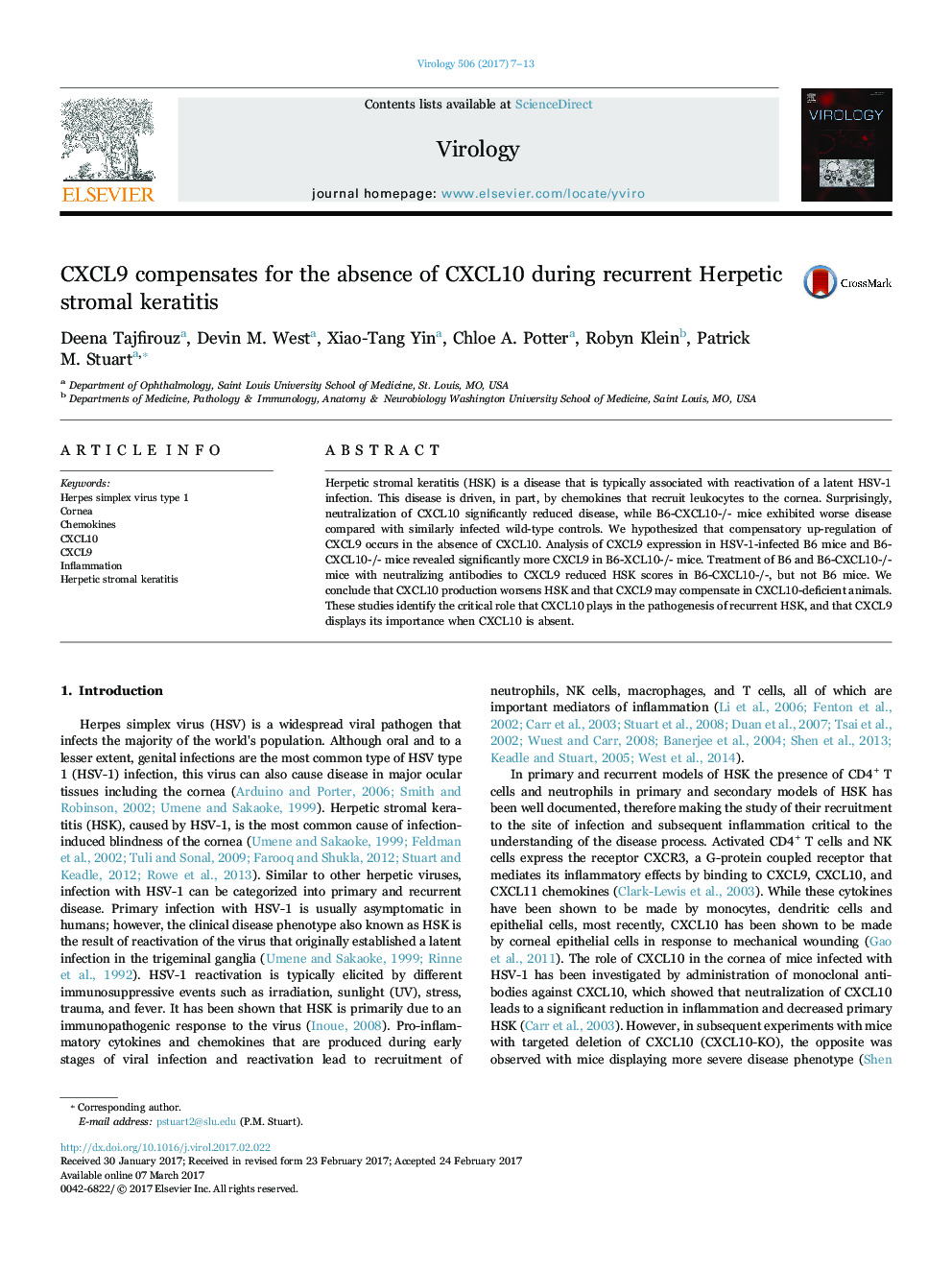| کد مقاله | کد نشریه | سال انتشار | مقاله انگلیسی | نسخه تمام متن |
|---|---|---|---|---|
| 5675101 | 1594211 | 2017 | 7 صفحه PDF | دانلود رایگان |

• Herpetic stromal keratitis (HSK) is primarily a recurrent not acute disease.
• Recurrent HSK is an immunopathologic attack on the cornea following reactivation.
• Determining the factors that control this attack is critical to understanding HSK.
• CXCL10 is critical to HSK while CXCL9 plays a similar role in the absence of CXCL10.
• These findings could suggest potential therapeutic treatments for HSK.
Herpetic stromal keratitis (HSK) is a disease that is typically associated with reactivation of a latent HSV-1 infection. This disease is driven, in part, by chemokines that recruit leukocytes to the cornea. Surprisingly, neutralization of CXCL10 significantly reduced disease, while B6-CXCL10-/- mice exhibited worse disease compared with similarly infected wild-type controls. We hypothesized that compensatory up-regulation of CXCL9 occurs in the absence of CXCL10. Analysis of CXCL9 expression in HSV-1-infected B6 mice and B6-CXCL10-/- mice revealed significantly more CXCL9 in B6-XCL10-/- mice. Treatment of B6 and B6-CXCL10-/- mice with neutralizing antibodies to CXCL9 reduced HSK scores in B6-CXCL10-/-, but not B6 mice. We conclude that CXCL10 production worsens HSK and that CXCL9 may compensate in CXCL10-deficient animals. These studies identify the critical role that CXCL10 plays in the pathogenesis of recurrent HSK, and that CXCL9 displays its importance when CXCL10 is absent.
Journal: Virology - Volume 506, June 2017, Pages 7–13